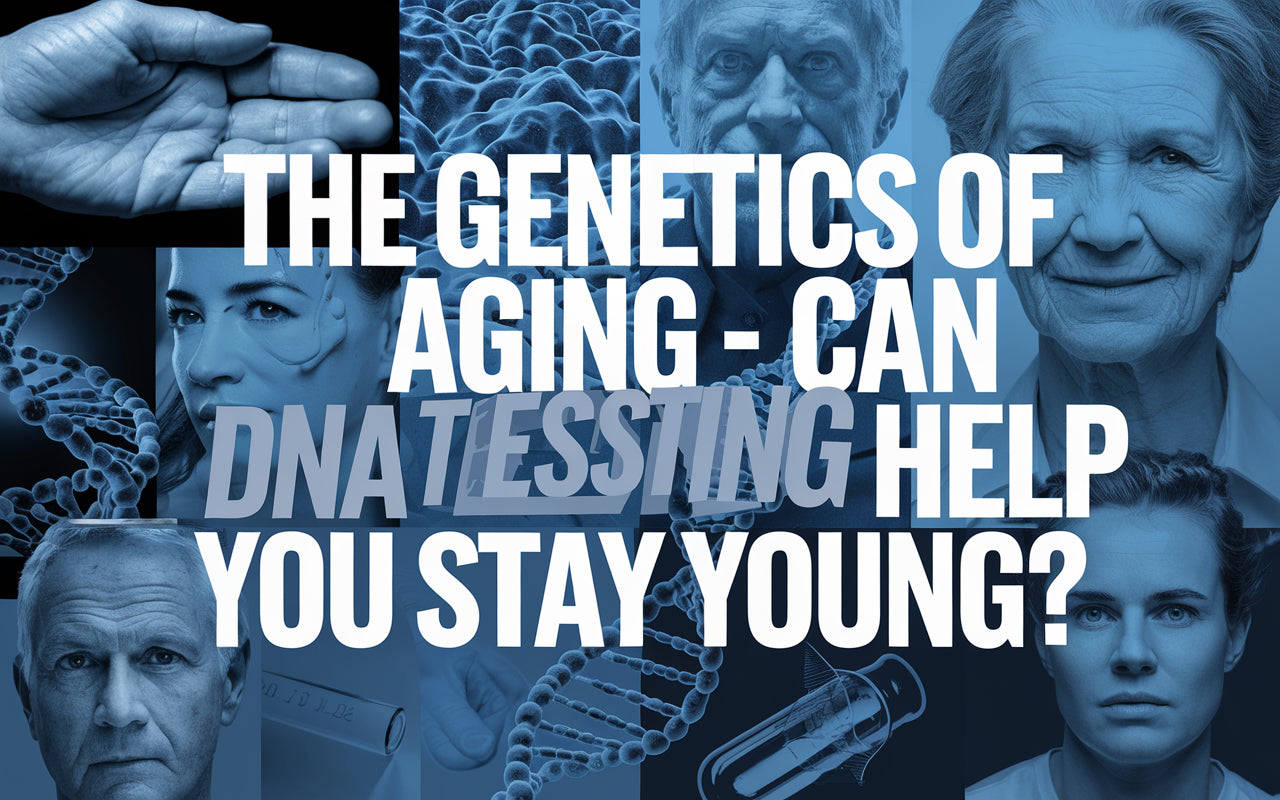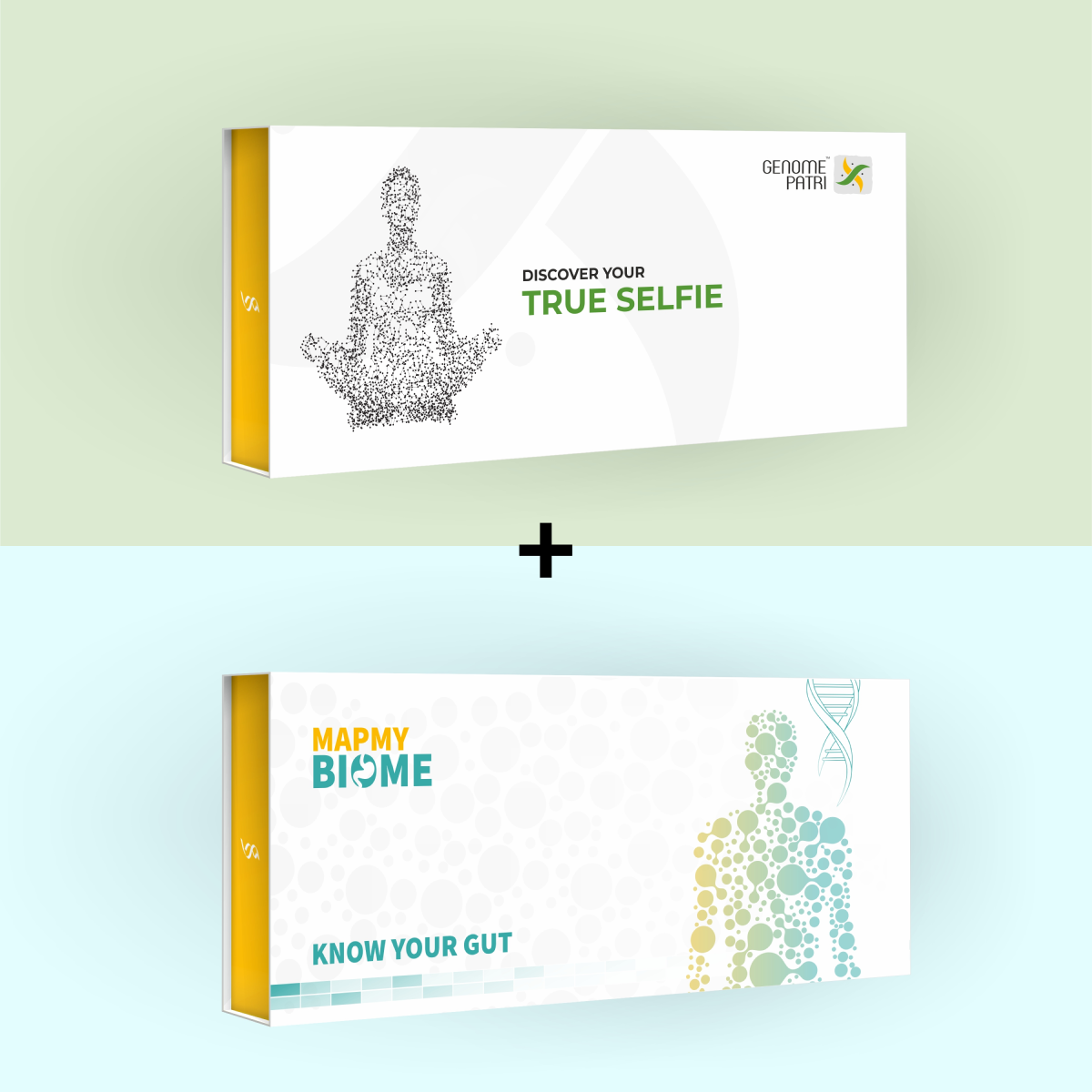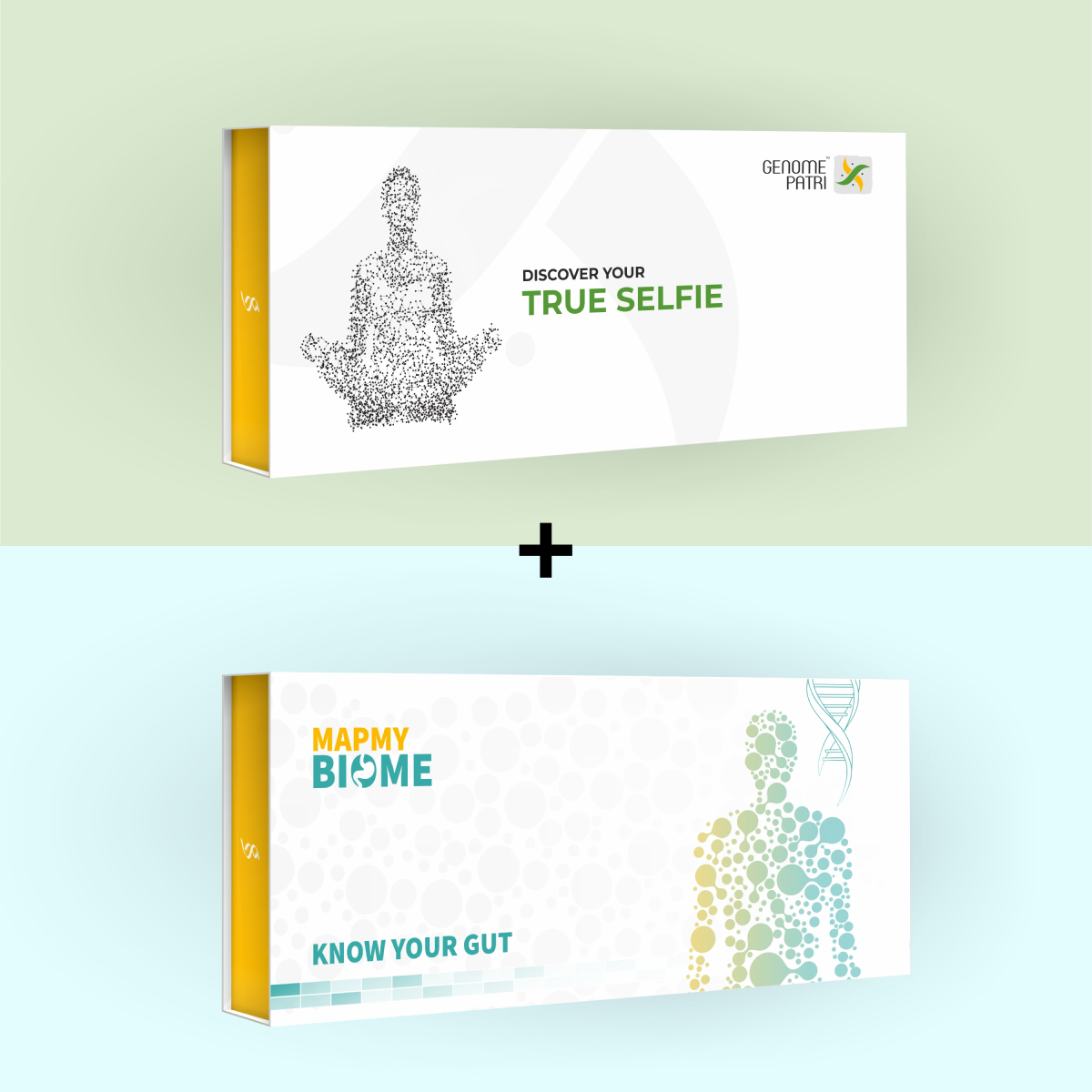Aging is an inevitable process, but what if we could understand its underlying mechanisms and take action to slow it down? Thanks to advances in genetic testing, we're closer than ever to uncovering the secrets of aging encoded in our DNA. By examining specific genes associated with aging, it's possible to gain valuable insights into how your body is aging and what you can do to promote longevity and a healthier life.
In this blog, we'll explore how genetic testing can contribute to understanding the aging process, the role of genes in aging, and how this knowledge can help you maintain youthfulness, improve your healthspan, and achieve a longer life.
The Science Behind Aging and DNA
Aging is a complex biological process influenced by multiple factors, including genetics, lifestyle, and environmental exposure. Our DNA plays a critical role in how quickly or slowly we age, with certain genes regulating cell regeneration, repair, and resistance to damage. Over time, genetic mutations, cellular damage, and reduced efficiency in repair mechanisms contribute to the physical signs of aging.
Scientists have identified several genes and biological pathways that directly influence the aging process. Some of these genes are involved in maintaining DNA integrity, protecting against oxidative stress, and regulating the production of proteins necessary for cell function.
Key genes that affect aging include:
- SIRT1 (Sirtuins): Involved in DNA repair and metabolism, sirtuins play a role in extending lifespan by promoting cellular health.
- FOXO3: Linked to longevity, this gene regulates oxidative stress and supports the maintenance of healthy cells.
- TP53: Known as the "guardian of the genome," TP53 helps prevent cellular damage and may protect against cancer development, making it crucial for healthy aging.
By analyzing these and other key genes, genetic testing can offer insights into how your body ages, potential risk factors for age-related diseases, and ways to optimize your health.
What is Genetic Testing for Aging?
Genetic testing for aging focuses on examining specific gene variants that are associated with longevity, cellular repair, and resistance to age-related conditions. These tests provide a detailed analysis of your genetic makeup and how it impacts your aging process.
DNA testing for aging typically assesses the following:
- Telomere Length: Telomeres are the protective caps at the ends of chromosomes, and their length is a key indicator of cellular aging. Shorter telomeres are associated with accelerated aging and increased risk for age-related diseases.
- Oxidative Stress Genes: Some genes control your body’s ability to neutralize free radicals, which cause oxidative stress and damage cells. A genetic predisposition to lower antioxidant activity may accelerate aging.
- Cellular Repair Genes: Genes that regulate the body’s ability to repair damaged cells or replace old ones are crucial to maintaining health as you age.
- Mitochondrial Health: Mitochondria are the powerhouse of cells, providing energy for bodily functions. Age-related decline in mitochondrial efficiency can lead to fatigue and reduced cellular function.
How DNA Testing Can Help You Stay Young
Genetic testing can provide personalized insights into your aging process, which can be used to develop a customized strategy to optimize health and longevity. By understanding your genetic predispositions, you can take proactive steps to mitigate risk factors and delay the onset of age-related conditions.
Here are some ways genetic testing can help you stay young:
1. Personalized Health Recommendations
By identifying your genetic predispositions, you can tailor your lifestyle, diet, and supplements to support healthy aging. For example, if your genetic test shows a predisposition to oxidative stress, you can focus on increasing antioxidant-rich foods and reducing exposure to environmental toxins.
2. Optimizing Your Diet for Longevity
Some genes influence how your body metabolizes nutrients. Genetic testing can reveal which foods and nutrients are most beneficial for your unique biology. For instance, individuals with certain gene variants may benefit from a diet high in omega-3 fatty acids, while others may need additional vitamin D to support bone health.
3. Preventing Age-Related Diseases
Genetic testing can assess your risk for age-related conditions such as heart disease, diabetes, Alzheimer's, and cancer. Knowing your risk factors allows you to take preventive measures, such as adjusting your diet, increasing physical activity, or scheduling regular health screenings, to reduce the likelihood of developing these conditions.
4. Optimizing Physical Activity
Your genes can influence how your body responds to different types of physical activity. Some people may benefit from endurance exercises, while others may see better results from strength training. By understanding your genetic predispositions, you can create a fitness plan that optimizes your body’s ability to maintain muscle mass, bone density, and cardiovascular health as you age.
5. Slowing Down Telomere Shortening
As mentioned earlier, telomere length is a key indicator of biological aging. Genetic testing can provide insights into how quickly your telomeres are shortening and whether you’re at risk for accelerated aging. By adopting lifestyle changes such as regular exercise, stress management, and a healthy diet, you may be able to slow down telomere shortening and promote longevity.
How to Use DNA Testing Results to Promote Healthy Aging
Once you’ve undergone genetic testing, the next step is to put your results to good use. A healthcare provider or genetic counselor can help interpret your results and create a personalized plan to optimize your aging process.
Here’s how you can implement the findings from a genetic test to stay young:
- Diet and Nutrition: Incorporate foods and nutrients that support your genetic profile, such as antioxidants, anti-inflammatory foods, and nutrient-dense options.
- Exercise Routine: Tailor your fitness plan to your genetic predispositions, focusing on exercises that enhance longevity and prevent muscle loss.
- Supplements: Based on your genetic makeup, consider taking supplements that target specific areas such as mitochondrial function, skin health, or brain health.
- Stress Management: Practice stress-reducing activities like meditation, yoga, or deep breathing exercises to promote longevity and reduce cortisol levels.
- Sleep Hygiene: Ensure you’re getting enough quality sleep, as poor sleep can accelerate the aging process and increase your risk for chronic conditions.
The Future of Anti-Aging: Precision Medicine
As genetic testing for aging becomes more advanced, the field of precision medicine is emerging as a powerful tool for longevity. Precision medicine focuses on tailoring treatments and preventive strategies based on individual genetic profiles, enabling more effective and targeted interventions for healthy aging.
In the future, we may see an increase in personalized anti-aging therapies that utilize gene editing, regenerative medicine, and other cutting-edge technologies to slow or reverse the effects of aging.
Conclusion
While aging is an inevitable part of life, genetic testing offers a new avenue for understanding and controlling how we age. By examining key genetic factors involved in aging, DNA testing provides valuable insights into your unique biology, helping you make informed decisions about your health and longevity.
By using the insights gained from genetic testing, you can take proactive steps to slow down the aging process, maintain youthful vitality, and live a longer, healthier life.







1 comment
dna test of anti ageing ? please send details